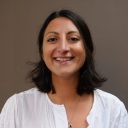It’s been over two weeks since the 2024 edition of the Next Frontier’s conference, and a statement from the opening session keeps playing in my mind: “The biggest risk we take is carrying on as usual.”
The Impact Investing Institute had the pleasure of hosting Kunle Apampa, Harry Davies, and Rasmus Nørgaard for a discussion on impact investing. The overwhelming message from the session was encouragement to action. Impact investors must have confidence in the market and allocate more, but they should also have the courage to back progressive business models that truly contribute to new economy outcomes, and different conceptualisations of wealth and value.
However, transforming the whole economy is more than just impact investing. It involves unpicking the deeply embedded wiring that keeps our financial system in place; the incentives that mean things carry on as they are through our intertwined crises of ecological breakdown, rising inequality and unstable geopolitics, while we tinker around the edges to address these challenges. In an increasingly unequal and unstable world, tinkering around the edges isn’t going to cut it. We need unprecedented effort at an unprecedented scale.
Some of my highlights of the day that pointed towards genuine catalytic change included:
The opening panel – this unprecedented moment perfectly set the tone. People in financial services talk a lot about risk through a solely financial lens; how to mitigate it, and when to take risks on new strategies, markets, and models in service of your bottom line. But the paradigm has changed. Risk is not just trying to quantify if the value of a portfolio go up or down, it is existential. We need to reframe what risk looks like, how we quantify it, and how we integrate considerations of systemic risk (e.g. climate tipping points) into our governance and processes.
Maike Kauffmann and Emma Shaw delivered an inspiring session on what steward ownership means and can look like—think John Lewis & Partners and Novo Nordisk. It was brilliant to hear about alternative business models designed to align a company’s operations and governance with long-term mission and values rather than short-term profit maximisation. At the Impact Investing Institute, we talk a lot about long-term thinking, but hearing tangible examples already happening and thriving was wonderful.
I was blown away by Astrid Scholz, who shared dazzling insights from her multifaceted career, including Zebras Unite, the Trim Tab concept of Buckminster Fuller, and this amazing framing: “The economy is a wholly owned subsidiary of nature.” Traditional economic thinking, taught in business schools the world over, silos the impact of activity from the world in which it sits, externalising negative impacts while reaping the financial benefits. Astrid eloquently made the case for a new way of thinking about the interconnectedness of things. To consider the economy as separate from our natural world is folly.
Dana Bezerra encouraged us all to be the “mosquito at the BBQ,” driving challenging ideas and helping investment colleagues awaken to the need for change. She also spoke to my favourite topic – fiduciary duties. Fiduciary duties are essentially the framework for investment decision-making. Until financial services actors and investors manage how their investments impact the world and accelerate investments that solve social and environmental challenges, we will always revert to the norm. The framework within which investment decisions are made is fundamental to our—and our planet’s—success. Hearing Dana and many other participants at the conference detail the practical ways they are pushing against the paradigm felt monumental.
I don’t think any attendees at Next Frontiers look at the world today and conclude that everything is working as it should be. But seeing that things need to change and understanding how that change can come to be are very different things. From discussions about the role of law to hacking the wealth defence industry, I left King’s Place with a much clearer picture of what radical transformation can look like—and, more importantly, how we can collectively get there.
Sophia Omar is Programme Manager for Impact Investing Institute






Comments (0)